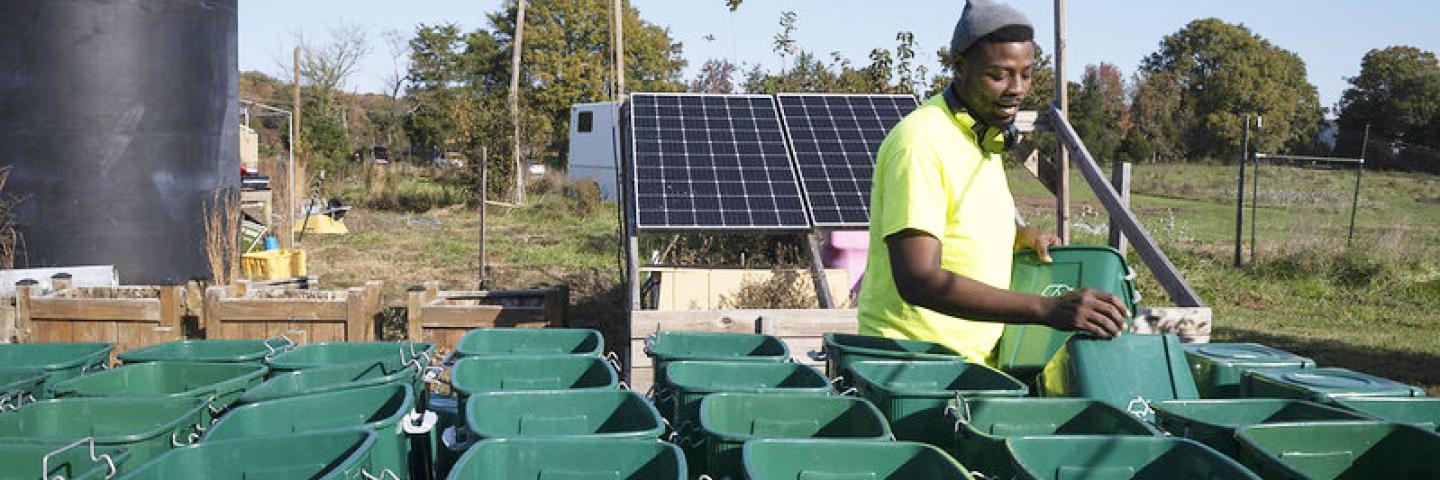USDA Invests $9.4 Million in Compost and Food Waste Reduction Projects

OUAIP was established through the 2018 Farm Bill. It is led by NRCS and works in partnership with numerous USDA agencies that support urban agriculture and innovative production. The CFWR cooperative agreements are part of a broad USDA investment in urban agriculture.
Three Colorado projects selected as the U.S. Department of Agriculture (USDA) invests more than $9.4 million in 45 cooperative agreements. USDA’s Compost and Food Waste Reduction (CFWR) cooperative agreements offer partner opportunities that support innovative, scalable waste management plans to reduce and divert food waste from landfills.
“These Compost and Food Waste Reduction projects play important roles in building resilient, local food systems, including strong food recovery networks and food waste reduction solutions that benefit farmers and communities,” said Clint Evans, NRCS State Conservationist in Colorado. They’re also great tools that encourages partnerships between USDA and non-traditional, and traditionally underserved customers.”
CFWR agreements are funded through the American Rescue Plan Act and are part of USDA’s broad support for urban agriculture through its Office of Urban Agriculture and Innovative Production (OUAIP). USDA prioritized projects that anticipate or demonstrate economic benefits, incorporate plans to make compost easily accessible to farmers, including community gardeners, integrate other food waste strategies, including food recovery efforts and collaborate with multiple partners. Projects will be implemented between 2023 and 2025.
Colorado projects include:
- The San Miguel County Comprehensive Compost and Food Waste Reduction Project - The project will 1) establish and enhance the physical and social infrastructure for regional composting and food waste reduction 2) enhance and expand a sustainable economic framework to facilitate agricultural compost use, and 3) create a replicable model that addresses specific barriers encountered by rural and mountain towns and beyond.
- The City of Glenwood Springs' Commercial Composting Expansion & Education Pilot program -The project will fund a new compost pad, educational programming to boost participation among area businesses, and create promotional materials to advertise sustainability efforts.
- Grand Junction Organic Waste Diversion and Compost Utilization Program - This project will demonstrate the need for food waste processing at the local compost facility by establishing an organic waste collection route with a temporary composting outlet that is within 100 miles of the County, the program will create the density and demand needed to show the economic benefits of accepting more materials at the local facility.
For a complete list of cooperative agreement recipients and project summaries, visit usda.gov/urban. These new agreements build on USDA’s $3 million investment in 37 agreements in 2020 and 2021.
###

